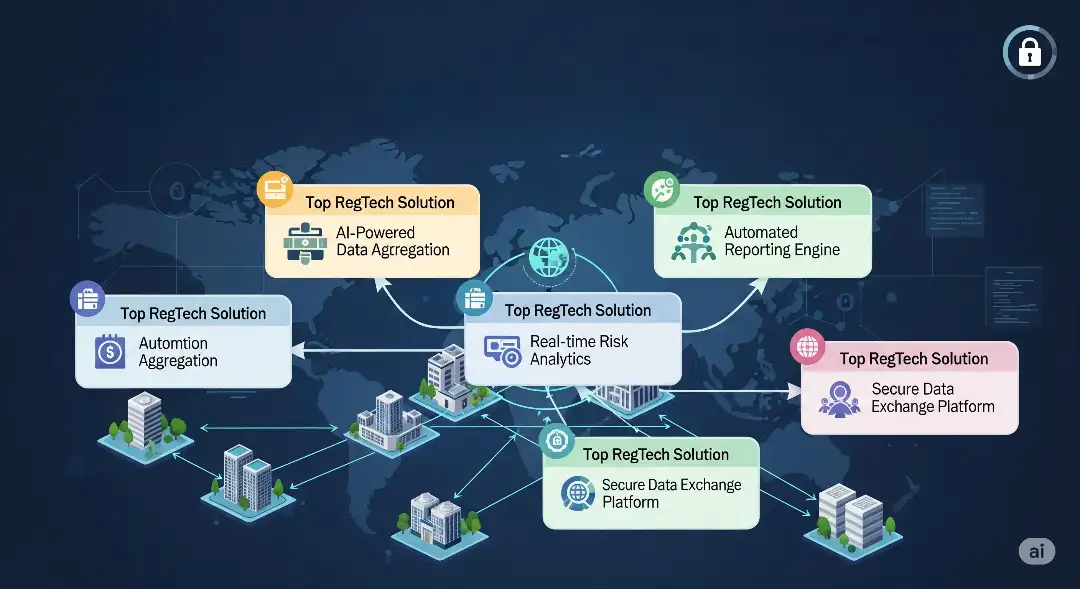FATCA & CRS Compliance Services: Top RegTech Solutions for Financial Institutions
Published by: Gautham Krishna RAug 19, 2025Blog
68% of financial institutions face penalties for FATCA/CRS errors due to manual processes and outdated systems, while AI-powered solutions reduce compliance costs by 84% per form and slash rejection rates by 85%. With evolving OECD CRS amendments (effective 2026) and IRS extensions for missing TINs (Notice 2024-78), financial institutions must adopt RegTech to avoid costly fines and operational bottlenecks. This guide reveals the top 5 strategies and tools to automate compliance, streamline reporting, and future-proof your operations.
Why FATCA/CRS Compliance Is Critical in 2025
The Stakes of Non-Compliance
- Global Penalties: Fines up to $50,000 per violation for inaccurate IRS/OECD reporting
- Data Breach Risks: 42% of institutions experience leaks during manual CRS data processing
- Operational Costs: Manual validation consumes 200+ hours monthly vs. 10 hours with AI tools
"18% of high-value accounts contain outdated self-certifications - a ticking compliance timebomb".
Top 4 FATCA/CRS Challenges & Automated Fixes
1. Identifying Reportable Accounts
Problem: Manual KYC processes miss 30% of joint/dormant accounts crossing thresholds.
RegTech Solution:
- AI-powered indicia scanning (e.g., TAINA Platform) flags discrepancies using jurisdiction-specific rules
- Automated residency checks via integrated tax authority APIs
- Impact: 95% accuracy in account classification
2. XML Report Generation Errors
Problem: 45% of submissions fail IRS/OECD schema validation.
RegTech Solution:
- Automated XML engines (e.g., Evalogical) with built-in validation:
<!-- Sample FATCA XML Snippet -->
<Report>
<Account>
<TIN Validity="true">123-45-6789</TIN> <!-- Auto-validated -->
</Account>
</Report>
Outcome: 100% schema-compliant filings
3. Data Security Gaps
Problem: 63% of breaches occur during CRS data transmission.
RegTech Fixes:
- End-to-end encryption with GDPR-compliant protocols
- Role-based access controls (e.g., TAINA's audit trails)
4. Manual Process Inefficiencies
Problem: Institutions waste $287K annually on repetitive data entry.
Automation Wins:
- Workflow integration: Sync CRS/FATCA One with core banking systems
- AI document processing: Extract data from scanned forms in 12 seconds
Top 3 RegTech Platforms Compared

Implementation Roadmap: Automate Compliance in 90 Days
Phase 1: Assessment (Weeks 1-2)
- Audit existing workflows with Deloitte's FATCA/CRS gap analysis
- Prioritize pain points: Data collection > Validation > Reporting
Phase 2: Tool Integration (Weeks 3-8)
- Deploy API-first platforms (e.g., TAINA/Evalogical)
- Migrate historical data using XML converters
- Train staff on new interfaces
Phase 3: Go-Live & Optimization (Weeks 9-12)
- Run parallel manual/automated reports for 1 cycle
- Adjust rules engines for false positives
- Enable real-time OECD update alerts
Get Custom Implementation Plan
Cost-Benefit Analysis: Manual vs. RegTech

Higher software costs offset by penalty reduction & efficiency gains
FAQs
Q: How much do FATCA/CRS solutions cost?
A: Tiered pricing:
- Basic: $15k/year (cloud-based, ≤10k accounts)
- Enterprise: $75k+/year (on-premises, multi-jurisdiction)
- Request quote
Q: Can RegTech handle 2026 OECD amendments?
A: Yes - leading platforms:
- Auto-update rule engines for new financial products
- Add crypto/NFT reporting modules (DAC8-ready)
Q: How secure is cloud-based FATCA data?
A: Critical safeguards:
- AES-256 encryption during transit/rest
- SOC 2 Type II-certified hosts
- GDPR/CCPA-compliant workflows
Q: What's the #1 mistake in CRS reporting?
A: Misapplying FATCA thresholds to CRS accounts - causing 32% of filing errors.
Need expert support?
"Banks using automated validation cut remediation costs by $4.2M annually".



 AI-Optimized ColdFusion Servic....
AI-Optimized ColdFusion Servic....
 The Psychology Behind Great UX....
The Psychology Behind Great UX....
 UX Is Not Just Design: How Use....
UX Is Not Just Design: How Use....
 AI-Powered MVP Development: Sm....
AI-Powered MVP Development: Sm....
 Build Your MVP Faster: AI Tool....
Build Your MVP Faster: AI Tool....



Your Trusted Software Development Company